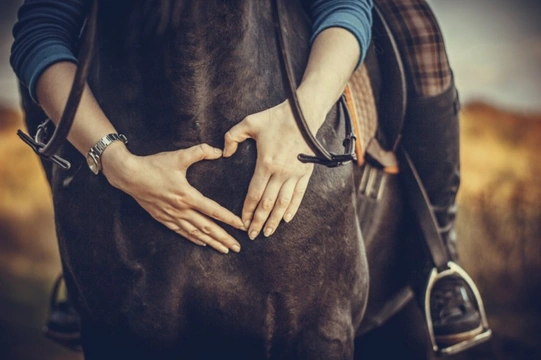
Looking after your horse and maintaining social distancing
If you keep horses and they’re not housed or grazed on your own land at which you also live, you might be wondering how social distancing and caring for your horse all works. Obviously people who own horses and ponies still need to provide care for them, but how can you do this safely and within the spirit of the coronavirus restrictions?
Most people with horses are already finding their way through social distancing and horse care, but this article will provide some tips and advice, in line with the government’s guidance on staying at home other than for essential reasons.
Read on to learn how to manage your horse through coronavirus social distancing measures to stay safe and keep your horse healthy too, based on the parameters of the restrictions that came into place on 23rd March 2020 and subject to later amendment.
Horse care and social distancing basics – what should you do, and avoid doing?
First of all, taking care of your horse or pony’s essential needs is allowed during social distancing, even if this means travelling away from home to do so.
However, this means basic care only, and you should streamline what you do and focus on providing maintenance care only. Unless your horse is stabled all day and must be ridden as their exercise, riding should not be seen as essential at this point, and ideally, horses will be put out to grass when this is possible.
If not, consider if there is an alternative such as lunging that you can utilise rather than riding, in order to avoid being out in public.
Also, if you can work out a rota with other horse and pony owners in your local area or that keep their animals at the same yard, this might help you to reduce the frequency of your visits, meaning you only need to go once a day, or every other day.
My horse needs to see a vet, is this possible during coronavirus restrictions?
Veterinary services for horses during coronavirus restrictions are still accessible, but only for emergency and essential purposes, and so whether or not your vet will come out will be different from normal.
If your horse’s issue isn’t urgent, and isn’t causing them pain, distress or suffering, your vet will not visit. However, clinics are offering phone and video consults in place of face to face consults where practical, so always call for advice if needed, as there are a number of workarounds in place.
My horse needs to see a farrier, is this possible during coronavirus restrictions?
Farriers are still working too, for essential care; for instance, if a twisted shoe or hoof issue caused pain or injury or placed your horse at risk of this. However, if it can wait, please try to do so, and if you do need to call the farrier out, try to do this remotely without direct contact between you.
How can I get horse feed and hay during coronavirus restrictions?
If you usually get your supplies delivered, these services will almost certainly continue as normal, or as near to normal as possible, staffing and sensible social distancing measures permitted. However, suppliers might have longer wait times than normal or be operating a reduced service, so get your order in well in advance.
Try to ensure you have at least two weeks of supplies in hand, but do not order more than you need or stockpile food needlessly, even if you have space; this will cause supply chain issues that could have been avoided entirely, and also, unless you have masses of air tight storage, food kept longer than normal might not be fit for consumption down the line, if it has got damp or rodents have found their way into it.
Are equine supply stores still open during coronavirus restrictions?
Country stores that sell feed and essential supplies remain open during coronavirus restrictions, other than if a personal decision by their owners has been made to close, or they are unable to provide sufficient staffing.
They may be operating reduced opening hours, and have their own social distancing measures in place, which you should follow. Consider what you need carefully; can you order it online or have the store deliver it instead? Many stores have started offering local delivery to reduce contact between customers and staff, so even if this is not normally on offer it is worth checking.
What should I do if I become ill and am unable to care for my horse?
If you become ill or need to self-isolate and don’t have a family member that can care for your horse, first of all see if the owners of the yard you keep your horse on can help or offer livery.
Also, check with other riders and owners at the yard ahead of time too. It is a good idea to plan ahead of time for how you would take care of your horse’s needs if you became ill with coronavirus.
If this is not possible or there isn’t anyone else around, many local village groups, parishes and communities have set up help and support groups to connect people who need help with practicalities with others who can help, and so it is worth looking into these too.
In an emergency if you have no other option and your horse has no care and nobody to take responsibility for them, contact the RSPCA.



